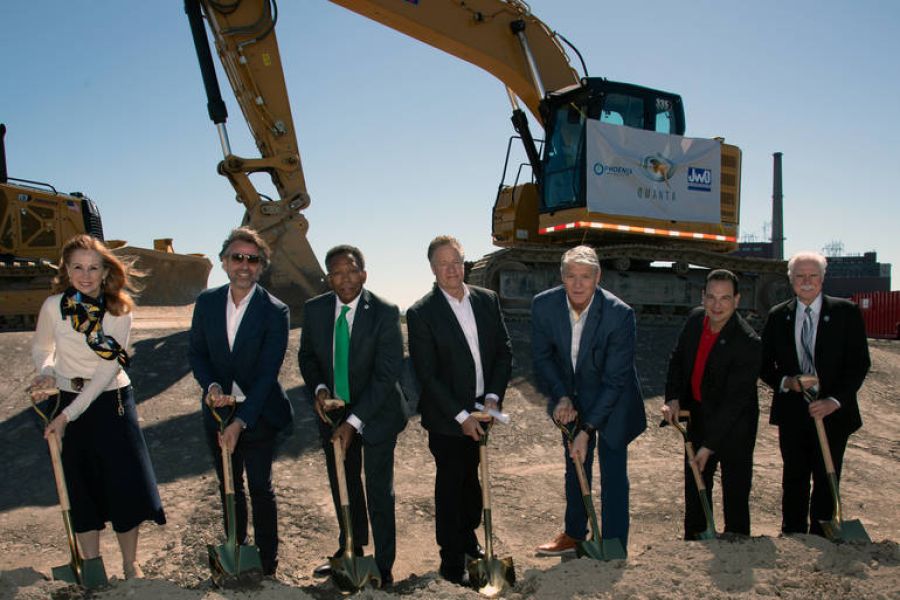The Latest Updates from New Jersey's Utilities Industry
SJI Wins Award for Project to Capture Methane Gas in Food Waste
LINDEN - At its 18th annual Leadership Awards event in Manhattan, the NGO Energy Vision recognized a trailblazing project that will cut methane emissions - the strongest available lever for reducing near-term global warming.
An award was given to South Jersey Industries (SJI) for its Linden Renewable Energy project, a massive anaerobic digester (AD) project located in Union County that will process food waste from the New York City region, capturing the methane biogases produced during decomposition so they don’t escape into the atmosphere.
Methane is a potent greenhouse gas with 85 times the global warming potential of carbon dioxide over 20 years.
According to the Global Carbon Project’s latest Global Methane Budget, methane emissions are now at record highs and rising faster than any time since record keeping began. This methane-cutting project recognized with an Energy Vision Leadership Award is a critically important model for reversing methane’s rise.
The Linden Renewable Energy (LRE) project now under construction is one of the largest AD projects in the US. With many more projects like this, the US could meet its commitment under the Global Methane Pledge of cutting methane emissions at least 30% by 2030, as Energy Vision showed in its May 2024 report Meeting the Methane Challenge.
Owned by South Jersey Industries (SJI) in partnership with RNG Energy Solutions and Captona, the project will convert organic waste into bio-methane using anerobic digestion technology in the New York/New Jersey metropolitan area. The bio-methane will then be upgraded to pipeline-quality natural gas for injection into the Elizabethtown Gas system next to the site.
When complete, the facility will convert up to 1,475 tons of waste to produce up to 3,783 MMBtu/day of Renewable Natural Gas (RNG). It is the energy equivalent value of 30,200 gallons of gasoline per day. By diverting organic waste from landfills, LRE is anticipated to avoid an estimated 120,000 metric tons of CO2e annually when working at full capacity.
“Renewable energy development is an integral element to our strategic approach,” said Steven Cocchi, SJI’s Senior Vice President & CFO. “In addition to providing safe, reliable and affordable energy to more than 730,000 New Jersey customers, SJI is committed to investing in sustainability efforts.”
ADs and advanced landfill gas collection systems are scalable, commercial options for cutting methane emissions from organic wastes. The biogases captured in ADs and in landfill gas collection systems can be used to generate onsite heat and power. Or they can be refined into clean RNG, which has the lowest lifecycle greenhouse gas emissions of any available fuel today.
RNG is chemically similar to fossil gas but utterly unlike it in its production and impacts. Because it is made from organic wastes and involves no drilling, RNG does not bring new carbon up from deep underground and release it into the atmosphere.
When food waste and/or manure is processed in ADs, the RNG produced is deemed “net carbon-negative” since more greenhouse gases are captured by making it than are emitted when the fuel is burned – a big net gain for the climate.
With methane concentrations at record highs, and methane emissions rising faster than ever, the race is on to reverse these trends and meet the Global Methane Pledge goal of cutting methane emissions 30% by 2030. Lowering methane quickly is the best avenue we have for reducing near-term global temperature rise.
Advanced landfill gas collection systems, AD, and RNG are key pieces of the puzzle for cutting methane emissions from organic wastes deeply, rapidly, and cost-effectively. The 2024 Energy Vision awardees have each played leadership roles in pioneering and scaling them up.
